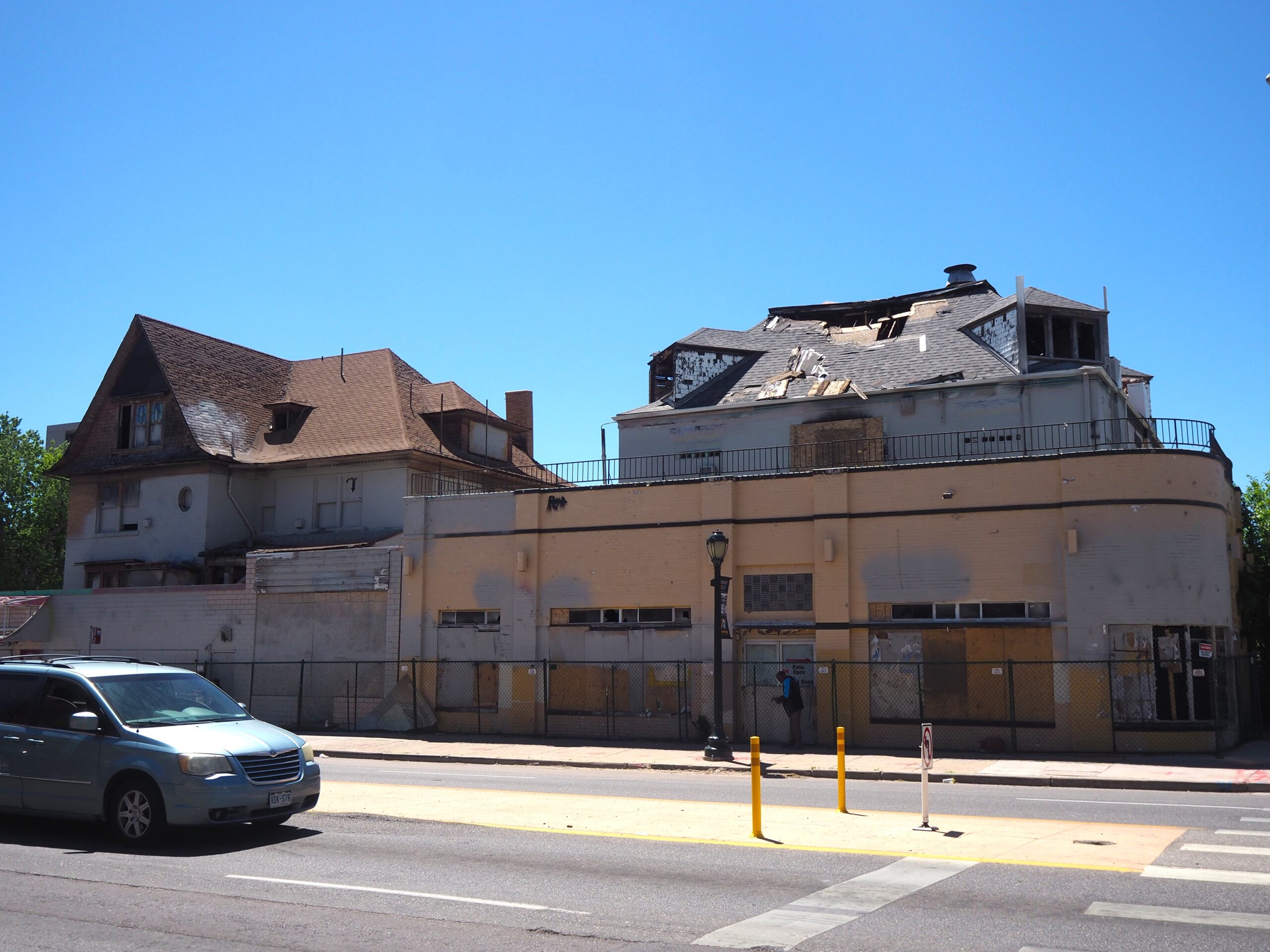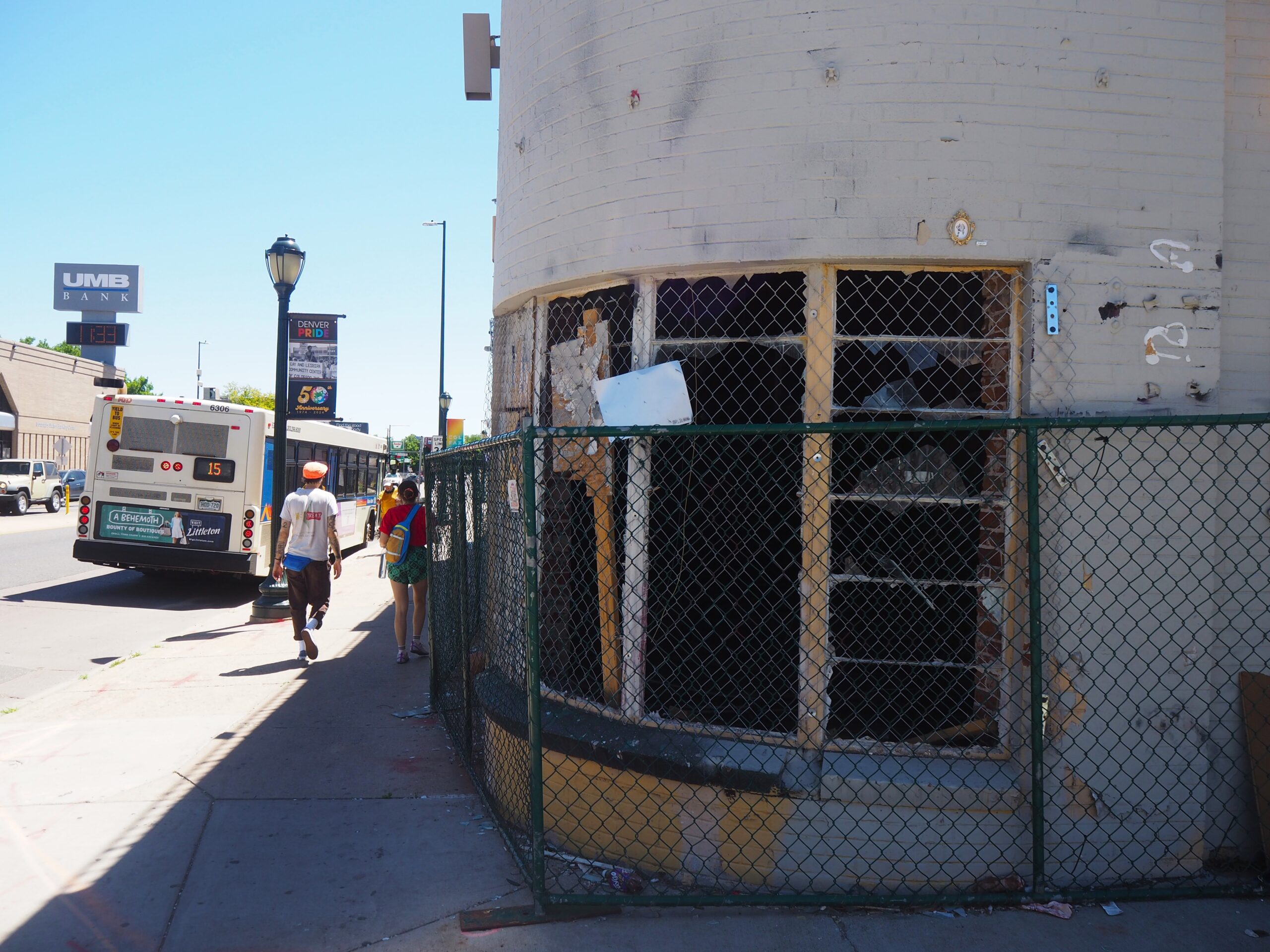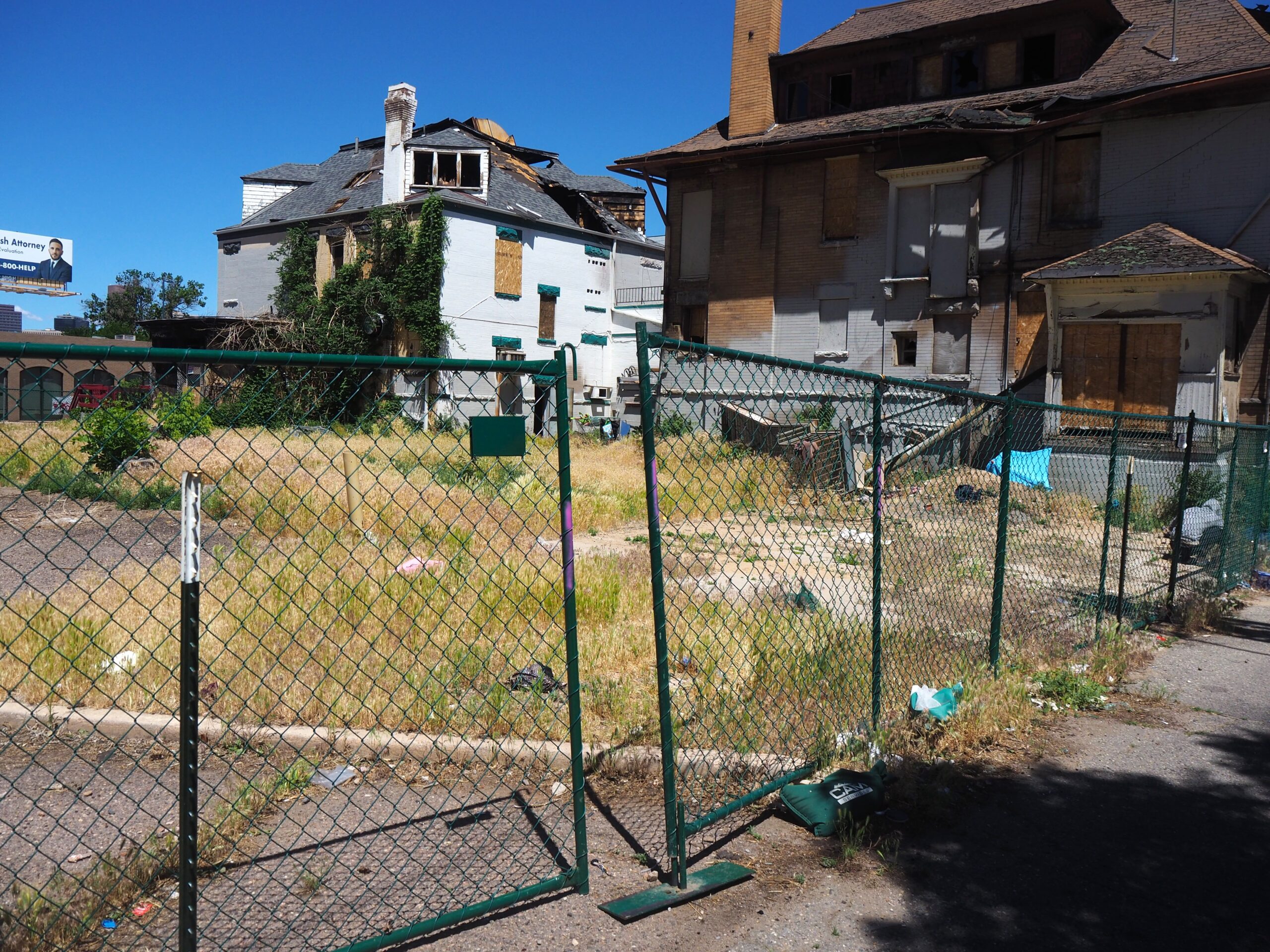
The buildings at 1600 and 1618 E. Colfax Ave. on Wednesday, June 5. (BusinessDen file)
The derelict buildings at 1600 and 1618 E. Colfax Ave., which locals describe as a magnet for crime, will come down.
Denver’s Landmark Preservation Commission voted Tuesday to allow the demolition of the dilapidated structures — one of which was damaged in a March fire — on economic hardship grounds. One member dissented.
The vote occurred six months after a hearing where the commission rejected property owner Pando Holding’s initial demolition request. The commission did not consider the cost of rehabilitation as part of that vote.
Pando, a Denver-based development firm, and its attorney argued at the hearing that it would cost between $4 million and $5 million to renovate 1600 E. Colfax, and another $3 million to $4 million to renovate the connected 1618 E. Colfax structure. They cited estimates from three separate general contractors. Those figures don’t factor in the purchase price of that property.
If that was done, the 1600 property would be worth $1.7 million factoring in the land value, and 1618 would be worth $1.9 million, they argued — meaning Pando would lose millions.
“We’ve now put the economics squarely before you,” said attorney Bill Kyriagis of Otten Johnson Robinson Neff + Ragonetti.
Pando, led by Kiely Wilson and Lance Gutsch, also said it believed a denial of its hardship claim would violate state and federal law, and that it believed it would have a claim for $10 million in damages.

The corner of the building at 1600 E. Colfax Ave. in Denver. It was once home to a restaurant. (BusinessDen file)
Pando bought the two buildings in 2017, paying $3.2 million for them and a parking lot to the rear, records show. The company originally hoped to demolish the buildings, but changed course when it appeared unlikely that demolition would be allowed. The buildings are classified as “contributing structures” to the city’s Wyman Historic District, which covers an area generally east of Cheesman Park.
Pando then hatched a plan to fix up the structures — basically old mansions with storefronts added in front — and construct a seven-story apartment building on the undeveloped land behind them.
That project became unfeasible as construction costs rose amidst the pandemic. And then there was a fire at 1600 E. Colfax on March 13 of this year, which further damaged the property. Denver’s fire department was unable to determine a cause, but squatters have regularly broken into the buildings, according to Pando and neighbors.
Numerous neighbors spoke in favor of Pando’s demolition bid — both in June and on Tuesday — describing the properties as a “nuisance” and “blighted corner” that they avoid.
“I have two kids at East High School. They can’t walk home from school along Colfax. They have a certain route that they’re allowed to take,” said David Weber, who lives by Cheesman Park.
Jimmy Balafas, a developer with Denver-based Kentro Group that has done projects along Colfax, said his own evaluation determined the fixed-up buildings would need to achieve retail rents of $63 a square foot triple net in order to work financially. The area currently maxes out around $24, he said.

A break in the fence surrounding the buildings at 1600 and 1618 E. Colfax Ave. on Wednesday, June 5. (BusinessDen file)
The handful of people that argued against demolition Tuesday were largely affiliated with Historic Denver, the preservation-minded nonprofit. CEO John Deffenbaugh described the rehab costs as “excessive” and noted Pando’s financial analysis didn’t take into account possible funding from the Denver Urban Renewal Authority, and state or federal tax credits.
Deffenbaugh said Pando knew the buildings were in the historic district when they bought it and had failed to adequately maintain and secure them. He warned allowing demolition would “create a playbook” that other developers would take advantage of.
When the public hearing closed, commissioner Larry Sykes said he believed Pando had “put together a thorough demonstration that the order of magnitude of loss here is enough to meet the economic hardship requirements.”
He also said public comments indicated there was a “broad feeling” the buildings weren’t compelling enough to preserve.
Commissioner Rusty Brown called the decision “a true conundrum.”
“I’m going to feel bad one way or the other at the end of this,” he said.
Commissioner George Dennis, the sole vote against demolition, said “a developer knows what they’re getting into” when they buy a property. He said he didn’t see “an investor who isn’t going to be able to make the numbers he wants” as amounting to economic hardship.
Pando’s Wilson told BusinessDen Tuesday evening that he’s not sure when the firm will demolish the structures. Generally, structures under the purview of Denver’s landmark process can only be demolished when plans have been approved for a replacement structure.

